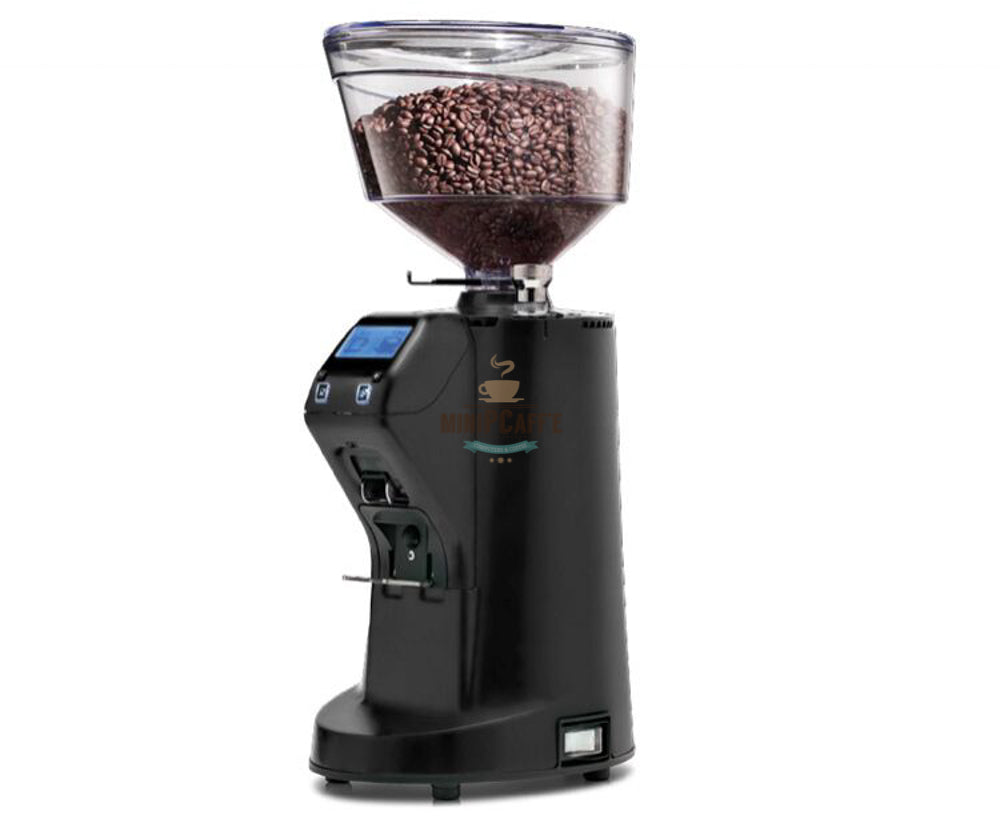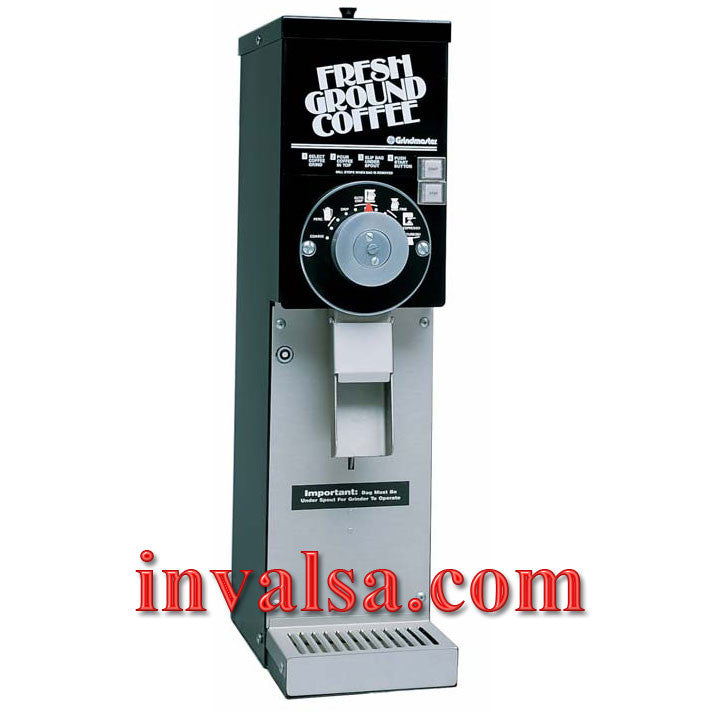Industrial Coffee Grinder for Mass Brewing: What You Need to Know
Industrial Coffee Grinder for Mass Brewing: What You Need to Know
Blog Article
How to Pick the Perfect Industrial Coffee Grinder for Your Business
Selecting the excellent industrial coffee grinder for your service is a multifaceted decision that needs mindful factor to consider of several essential variables. It is vital to assess your details grinding needs, consisting of the quantity of coffee processed and the preferred work uniformity, as these aspects directly impact taste and customer contentment. Additionally, understanding the various kinds of mills readily available can considerably influence your operational performance. As you navigate these factors to consider, one need to likewise weigh the effects of budget plan and maintenance. What other variables could make or damage your selection?
Assess Your Grinding Requirements
When picking an industrial coffee grinder, one should initially examine their grinding demands to ensure optimal performance and consistency. This initial examination entails recognizing the quantity of coffee to be refined daily, along with the wanted grind size for various brewing techniques. A high-capacity grinder may be needed for organizations offering huge quantities of coffee, while smaller operations may discover a much more portable version sufficient.
Additionally, it is important to consider the types of coffee beans being utilized, as various beans might call for certain grinding methods to accomplish the very best flavor account. For circumstances, oily beans may necessitate a grinder made to manage such features without overheating or clumping.
Specialty coffee companies typically demand precise work sizes to improve removal and flavor, making it crucial to choose a grinder that can provide consistent results. Reviewing the available area and electrical needs will assist in selecting a mill that fits seamlessly into your operational process.
Understand Grinder Types
Recognizing the various sorts of commercial coffee grinders is essential for making a notified option that fulfills details operational requirements. There are mainly two groups of mills: blade mills and burr mills.
Blade mills utilize spinning blades to slice the coffee beans, causing an irregular work size - Industrial Coffee Grinder. While they might be extra inexpensive, they are usually not suitable for industrial applications where accuracy is necessary
On the other hand, burr mills offer a much more uniform grind by crushing the beans between two surface areas. They can be more classified right into flat burr and cone-shaped burr grinders. Flat burr mills supply a regular work dimension and are typically preferred for coffee prep work, while cone-shaped burr grinders are versatile and can handle a range of brew methods, from coffee to French press.
When picking a grinder, consider the details needs of your company, consisting of wanted grind consistency, manufacturing volume, and the kinds of coffee beverages you prepare to provide - Industrial Coffee Grinder. Each grinder type has its limitations and benefits, so understanding these subtleties makes it possible for informed decision-making that straightens with operational goals
Evaluate Grind Size Consistency
Achieving grind size consistency is vital for creating high-grade coffee, as variants in particle size can dramatically impact extraction and flavor. When choosing an industrial coffee mill, it is important to evaluate just how well the machine keeps uniformity in work size across various batches. Irregular grind sizes can bring about unequal removal, leading to a mug that may taste overly bitter or weak.
To examine grind dimension consistency, take into consideration mills with features such as flexible grind settings and top quality burrs. Burr grinders, particularly, master creating uniform bit sizes contrasted to blade mills. The material and shape of the burrs play a vital role, with stainless-steel and ceramic options offering longevity and precision.

Consider Production Ability
In the hectic globe of coffee manufacturing, taking into consideration manufacturing capability is paramount for companies aiming to satisfy demand without compromising high quality. The production capability of an industrial coffee grinder directly affects a firm's capacity to accomplish orders successfully, take care of supply, and reply to rising and fall market trends.
When examining manufacturing ability, it is vital to examine the mill's result price, commonly measured in extra pounds per hour. This measurement needs to straighten with your business's predicted sales volume and growth targets. A café with a high turnover might need a grinder that can refine numerous hundred extra pounds daily, while a smaller operation might suffice with a reduced ability design.
Furthermore, think about the sort of coffee being processed. Different beans and blends might influence grinding rate and effectiveness, requiring a grinder with the ability of managing diverse production demands. It's likewise worth factoring in the mill's capability to maintain regular high quality under high output problems, as any type of fluctuations can influence the end product.
Ultimately, picking a mill that matches your service's production ability will guarantee you continue to be receptive and competitive to consumer expectations.

Budget Plan and Maintenance Factors
When assessing the best industrial coffee maintenance, mill and spending plan factors play a considerable duty in the general decision-making process. An initial investment in a premium mill can yield long-lasting advantages, but it's vital to develop a clear budget that lines up with your company's operational requirements. Take into consideration both the acquisition cost and potential functional prices, such as energy usage Visit This Link and replacement components.
Upkeep is another essential facet that can impact your budget plan. Industrial coffee grinders call for normal maintenance to make certain optimum performance and durability. Review the producer's referrals for maintenance, including cleansing timetables and components replacement, as these will certainly influence lasting functional prices. Additionally, consider the availability of solution and assistance, as trustworthy aid can reduce Get More Info downtime and repair service expenses.

Investing in a mill that is durable yet very easy to maintain can save money gradually. While lower-priced choices might be tempting, they might incur higher upkeep prices and decreased effectiveness. Eventually, stabilizing preliminary costs with lasting maintenance and functional effectiveness will guide you to the very best selection for your business's coffee grinding demands.
Conclusion
Selecting the optimal commercial coffee mill demands an extensive analysis of grinding needs, grinder kinds, grind size consistency, production ability, and monetary factors to consider. By prioritizing these factors, businesses can make certain the purchase of a reliable, efficient grinder that fulfills certain operational demands. An appropriate mill not only improves the top quality of the coffee created yet additionally adds to the total success and earnings of the business. Lasting efficiency and maintenance convenience should navigate to these guys stay main to the decision-making procedure.
Specialty coffee businesses frequently demand exact work sizes to improve removal and flavor, making it vital to choose a mill that can supply consistent results. Flat burr grinders supply a consistent grind size and are generally favored for coffee preparation, while conical burr grinders are flexible and can manage a range of mixture approaches, from coffee to French press.
When choosing a commercial coffee mill, it is essential to review just how well the machine maintains uniformity in work size throughout various batches. Burr mills, in particular, succeed in creating uniform particle dimensions compared to blade mills.Selecting the suitable commercial coffee grinder necessitates a detailed evaluation of grinding demands, mill types, grind dimension consistency, manufacturing capability, and budgetary factors to consider.
Report this page